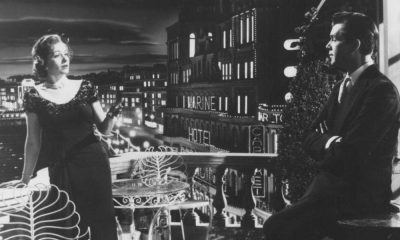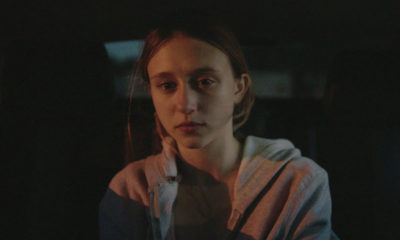Film Events
Toronto’s TIFF Bell Lightbox in the Midst of Majestic French Cinema Retrospective
Who knew that some septuagenarian films in a non-English language about class conflicts, prisoners of war, and cancan dancing could still be the hottest tickets in town? The TIFF Cinematheque did, evidently, as they’ve watched their seats fill up without fail during many a French-filled summer in their twenty-odd year history. In 1997-99 – way back when they were still Cinematheque Ontario and TIFF was just a neighboring, momentary event – James Quandt and co. slathered their summer line-ups with exclusively French productions and practically nothing else. The AGO’s 200-seat Jackman Hall could hardly contain the swarms of cinephiles salivating for the opportunity to catch rare (even rarer now) 35mm prints of the medium’s staple masterpieces: The Poetic Realists, The French Impressionists, The New Wave, The Left Bank, and Pialat (who’s earned his own category).
While this year’s incarnation already kicked off with the aforementioned Jean Renoir classics (The Rules of the Game, Grand Illusion, and French Cancan), the following week featured a double-bill with films so rare that even die-hard Cinematheque regulars had never ever heard of them, much less seen them. That is, unless they attended the Il Cinema Ritrovato festival in Bologna this past June, where they launched a near-complete retrospective of the criminally un-canonized Poetic Realist/avant-gardist Jean Grémillon. The pair of films brought over for this sample tasting were 1941’s Remorques [Stormy Waters] and 1943’s Lumière d’été [Summer Light]. Adequately representing Grémillon’s themes of unrequited love, the human capacity for loving multiple people (and things) simultaneously, and the Romantic allure of the sea as a constant, ominous threat, these two films make up two-thirds of his most well-known trifecta (the third being 1944’s Le Ciel est à vous [The Sky Is Yours], which is not part of the programme).
From the New Wave, their are of course the obligatory early Godards (Breathless (August 9, 6:30), Vivre as vie (August 9, 8:45), 2 or 3 Things I Know About Her (August 10, 6:30), Pierrot le fou (August 10, 8:45), and that brand-spanking new Print of Weekend (August 16, 6:30, with into by TIFF CEO Piers Handling)), not to mention the regulars from Truffaut. Sure as the morning sun these films were slotted into the programme, and just as surely they will sell-out. Commonly regarded as the Golden Age of Godard, these five films are among his initial 15 from the first eight years of his career. Filled to the brim with formal innovation and playfulness, pokes at his storied relationship with Anna Karina, and hints (relative to everything from the second half of Weekend and on) of the radical Marxist politics that so preoccupied his bedtime reading, there is no better place to start (and, many would argue, end) with Godard than here.
Like the two Grémillons, though, not everything in Summer in France is a blockbuster. Alain Cavalier’s Le Combat dans l’île is getting its first ever screening in Toronto on August 11 at 5:00; his first film, Le Combat predates his well-known, self-reflexive diarist style (e.g. Thérèse) and details a radical right-wing terrorist organization that attempts a political assassination. It’s as much a love affair with Romy Schneider’s body as a cry against the conflicts with Algeria and Vietnam. Also rare are two films by George’s Franju, whose style was outlined by Henri-Georges Clouzot as “a poignant fantastic realism inherited from surrealism and Jean Painlevé science cinema, and influenced by the expressionism of Lang and Murnau.” Screening toward the end of the programme, Thomas the Imposter (August 30, 6:30) and Thérèse Desqueyroux (September 1, 5:00) bookended Franju’s slightly better renowned Feuillade remake Judex, and yet both stand outside of his typical genre intrigue (certainly accounting for their tamed reputations), which is best represented in his gothic sci-fi masterpiece Eyes Without a Face (August 29, 6:30).
Alas, there are too many riches to mine here for a single article to do justice. From Pialat’s under-seen and underrated Van Gogh (August 25, 1:00) to Jean Eustache’s bizarrely too-impossible-to-see touchstone The Mother and the Whore (August 26, 7:00) to a brief 70mm run of Jacques Tati’s Play Time (August 30 – September 2) – which can never be seen in that format enough times – TIFF’s Summer in France is a convincing enough argument in itself for why there needs to be so many summers in France. From the country that brought us the first film ever made in 1895’s L’Arrivée d’un train en gare de La Ciotat, to perhaps the best of 2012 so far in Leos Carax’s Holy Motors, it’s the national cinema that’s kept on giving, from beginning till end.



























